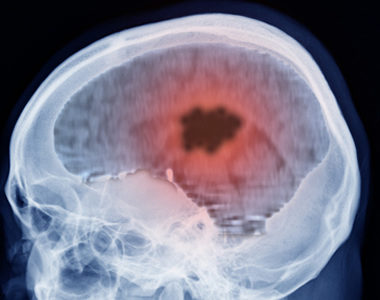A scientist at Northwestern University Feinberg School has developed a new three-dimensional imaging technique which makes it far easier to identify brain tumors in magnetic resonance imaging (MRI) scans.
The technique improves the contrast between healthy brain tissue and tumors making the tumors twice as easy to identify.
The new technique was used in a study of MRI scans of 54 patients with brain tumors. The researchers report a two-fold improvement in the visibility of brain tumors.
Brain tumors can be difficult to treat. The key to successful treatment is identifying malignant tumors early while they are still small; however, currently used MRI techniques often miss these small tumors, leading to a considerable delay in diagnosis.
Dr. Robert Edelman, professor of radiology at Northwestern University, explained the problem with identifying small brain tumors is similar to seeing stars in daylight. The stars are still there, but there is not sufficient contrast to be able to see them. It is only when the contrast improves at dusk that the stars become visible.
The new technique, termed the T1 relaxation-enhanced steady-state (T1RESS) MRI technique, is particularly useful for identifying small malignant brain tumors at a stage when radiotherapy or surgery is most likely to be successful. The technique applies the radio waves and magnetic fields used in standard MRI’s differently, with the signals manipulated to significantly improve contrast.
The researchers are planning a larger multi-site trial to confirm the findings of their small study, and hope to also use the technique to improve contrast in MRI scans of other locations, such as the prostate and breast tissue.
The researchers claim the new technology would be straightforward to make widely available for use in existing MRI scanners, as no change in equipment is required, just the use of a specialized software solution.
You can read more about the study in the paper – Twofold improved tumor-to-brain contrast using a novel T1 relaxation-enhanced steady-state (T1RESS) MRI technique – which was recently published in the journal Science Advances. DOI: 10.1126/sciadv.abd1635
